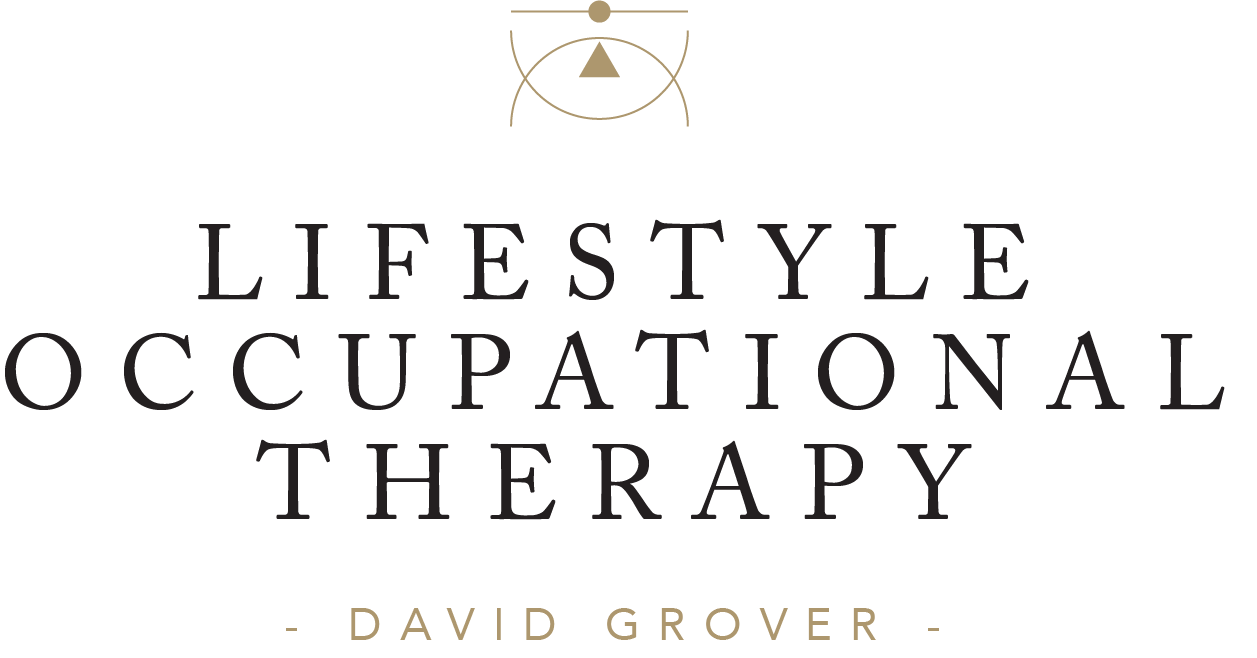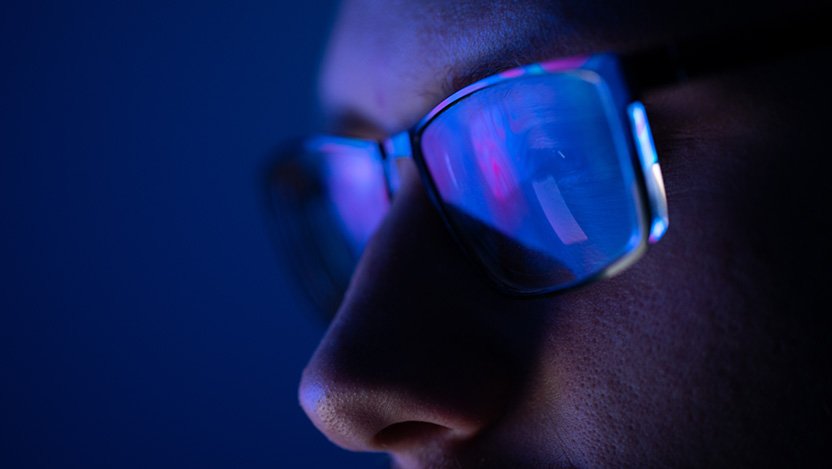Blue Blocker Glasses And Device Eye Strain
If you're intrigued by blue light glasses, here's the rundown on these non-prescription frames.
To buy blue light glasses or not to buy blue light glasses—who would've thought that would be the question? Dealing with dry eyes, a throbbing headache, and fatigue after hours of staring at your computer screen might be all the incentive you need to get a pair of blue-light-blocking glasses, but before you whip out your wallet, here’s what you need to know about these particular frames, and whether or not they're worth buying.
What Is Blue Light?
Blue light is hardly anything new—it just seems that way due to the ubiquity of blue-light-emitting electronics and recent trendiness of blue light glasses. Blue light waves—short, high-energy wavelengths on the visible light spectrum—occur naturally in sunlight and play a key role in helping you maintain a healthy circadian rhythm. It cues your body that it's daytime, boosts your alertness and energy, and it improves your mood.
Is Blue Light Bad for You?
Here's where there's some discrepancy. According to the American Academy of Ophthalmology, there's no scientific evidence that blue light actually damages your eyes. That said, research by the American Macular Degeneration Foundation has suggested blue light may also be responsible for retinal damage and increase the risk of age-related macular degeneration, which causes vision loss as people age.
While blue light's negative impact on eyesight may be disputed, we do know exposure to too much blue light, or exposure to blue light at unnatural times of day (*ahem*, at night), can definitely throw off your body’s natural sleep-wake cycle. That’s why many people have trouble falling asleep after using phones or watching TV right before bed: They’ve been taking in blue light, which tricks their bodies into thinking it’s daytime. So that late-night Netflix binge or Instagram rabbit hole that seems relatively harmless could be the reason you toss and turn for hours after finally unplugging.
Do Blue Light Glasses Really Work?
Blue light glasses are meant work as blue light filters between your eyes and your digital screens (or LED and fluorescent lights). Tons of people swear by their blue light glasses, claiming midday headaches, fatigue, eye irritation, and insomnia are a thing of the past since treating themselves to a pair.
Testimonials are one thing, but what about the science of it all? Interestingly, research results from studies conducted in Australia and the U.K proved that people who wore blue-light-blocking glasses did not develop better vision or less eye fatigue than those who didn't wear them. One ophthalmologist and retina surgeon, Abdhish R. Bhavsar, MD, a clinical spokesperson for the American Academy of Ophthalmology, says wearing blue light filter glasses to prevent eye damage is "a big urban myth." However, there's definitely research to support the idea that exposure to blue light, especially at night, can make falling asleep a real drag. Getting a pair for watching TV, Facebook stalking or working at night could be worth it. Continue Reading…

